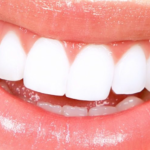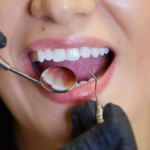A single tooth denture is a removable dental appliance that replaces a missing tooth. It is custom-made to match the color and shape of the natural teeth, providing a natural-looking solution for a missing tooth.
Single tooth dentures are used to restore the appearance and function of the mouth, allowing patients to chew, speak, and smile with confidence. When a tooth is lost due to decay, injury, or other reasons, a single tooth denture can be an effective option for restoring the smile and maintaining proper oral health.
This type of denture is designed to fit comfortably in the mouth, offering a seamless blend with the remaining teeth. In addition to its aesthetic benefits, a single tooth denture can also prevent surrounding teeth from shifting and help preserve the structure of the jawbone. If you have a missing tooth and are considering options for replacement, a single tooth denture may be a suitable solution to consider.
Types Of Single Tooth Dentures
Types of Single Tooth Dentures:
| Partial Dentures | Complete Dentures | Implant-Supported Dentures |
| Partial dentures are used when a single tooth is missing. They are secured to neighboring teeth using clasps or attachments. | Complete dentures, also known as full dentures, are used when all teeth are missing in either the upper or lower jaw. They are custom-made to fit the individual’s mouth. | Implant-supported dentures utilize dental implants for stability. These dentures are more secure and comfortable compared to traditional removable dentures. |
Procedure For Getting A Single Tooth Denture
Getting a single tooth denture involves several steps. First, you’ll have an initial consultation with your dentist to discuss the treatment plan. Then, if necessary, the tooth extraction will be performed. After that, an impression of your mouth will be taken to create a custom denture. Once the denture is ready, the fitting will be done to ensure it’s comfortable and functional.
Frequently Asked Questions For Single Tooth Denture
What Is A Single Tooth Denture?
A single tooth denture, also known as a partial denture, is a removable dental appliance that replaces a single missing tooth. It consists of a prosthetic tooth attached to a gum-colored base, which is custom-made to fit your mouth. The denture helps restore your smile and allows you to chew and speak properly.
How Is A Single Tooth Denture Different From A Dental Implant?
A single tooth denture is a removable appliance that sits on your gums and replaces a missing tooth, while a dental implant is a permanent solution that involves surgically placing a titanium post into your jawbone to support a crown.
Both options have their advantages and it’s best to consult with your dentist to determine which is right for you.
Can A Single Tooth Denture Affect My Speech?
At first, you may experience slight difficulty speaking with a single tooth denture, but with practice, your speech should improve. The denture may feel bulky in your mouth initially, affecting your pronunciation. However, as your tongue and muscles adapt to the new appliance, your speech will become clearer and more natural.
How Long Does It Take To Get A Single Tooth Denture?
The time it takes to get a single tooth denture can vary, depending on your individual case. After your initial consultation and assessment, your dentist will take measurements and impressions of your mouth. The denture will be custom-made in a dental laboratory, which can take a few weeks.
Once it is ready, your dentist will ensure proper fit and make any necessary adjustments.
Conclusion
To sum up, a single tooth denture offers a convenient and cost-effective solution for restoring a missing tooth. With its natural appearance and comfortable fit, it ensures improved functionality and confidence in your smile. By choosing a reputable dentist and following proper oral hygiene practices, you can enjoy the benefits of a single tooth denture for years to come.
Experience the joy of a complete smile and regain your ability to eat, speak, and laugh without hesitation.














